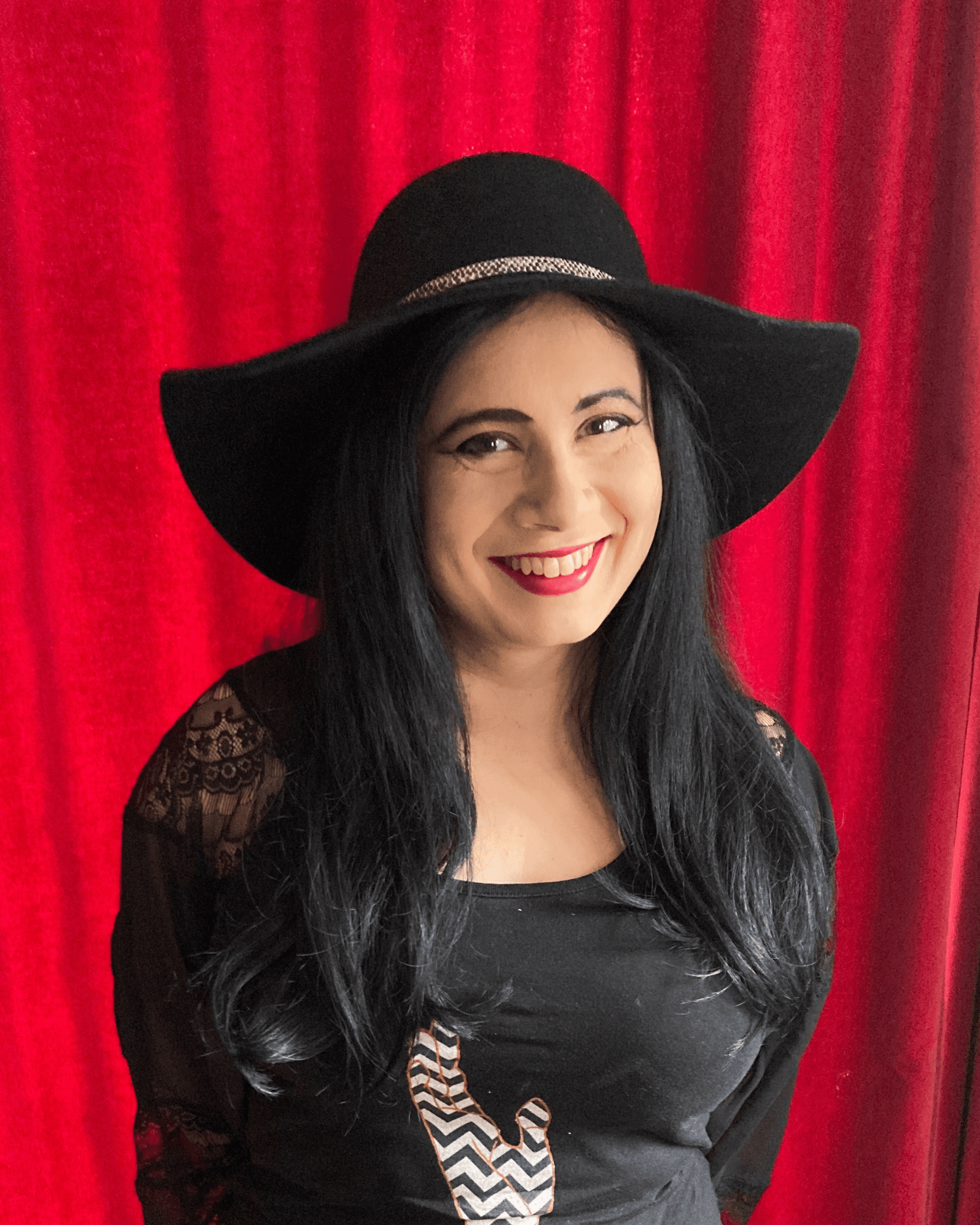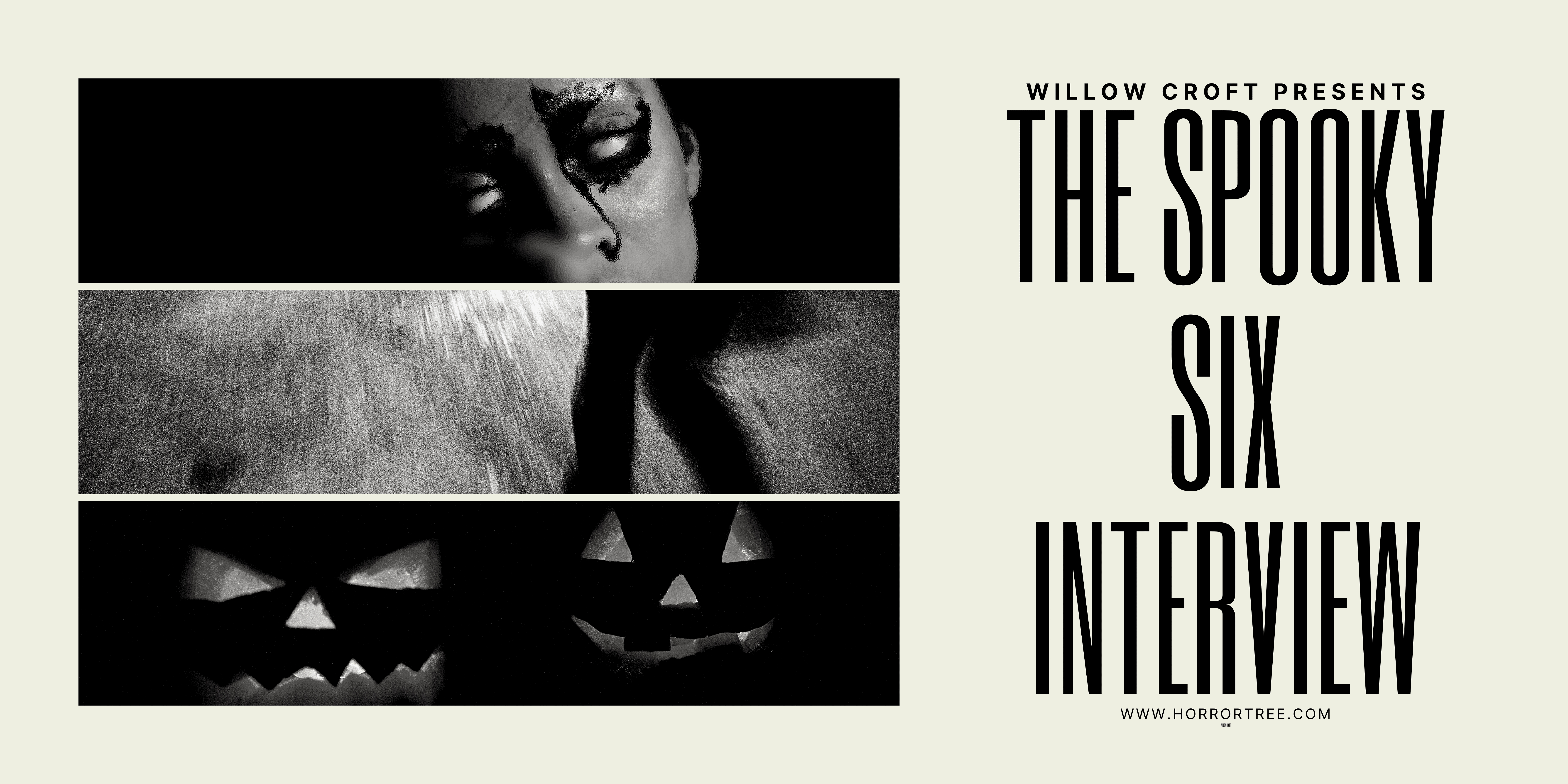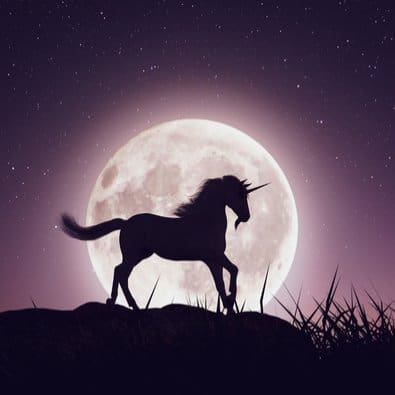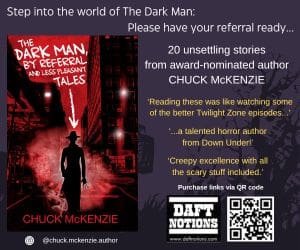The Spooky Six Interview with Dr. Rachel Knightley and Willow Croft
I’m taking tea with Dr. Rachel Knightley in a green room as we talk all things theatre (I practically grew up in one as I have a family member who’s an actor and, yes, it was a complete coincidence that I chose a theatre theme for my October horrorscopes: https://horrortree.com/october-2023-horrorscopes-how-youll-die-in-a-theatre/), the chimerical David Bowie, and navigating the truly terrifying world…of writing!

Dr. Rachel Knightley is a fiction and non-fiction author, presenter, lecturer and writing and confidence coach. Her background in directing and performing for theatre formed her fascination the power of the stories we tell ourselves to shape our identity. You’ll find these themes of performance and reality in her upcoming short story cycle, Twisted Branches (to be published by Black Shuck Books on 26 October), and her first collection, Beyond Glass, published in 2021 (Black Shuck Shadows), along with her stories in anthologies such as Great British Horror 5: Midsummer Eve, British-Fantasy-Award-nominated Dreamland (Black Shuck Books), and Uncertainties vol. 3 (Swan River Press). Her non-fiction includes WJEC/Eduqas’s GCSE Drama Study and Revision Guide (Illuminate/Hodder Education) and Your Creative Writing Toolkit.
Rachel has written and presented documentary features for blu-ray extras and YouTube channels including Starburst magazine, Indicator Films, Second Sight Films, Severin Films and Green Ink Writers’ Gym’s Write Through Lockdown programme. Her articles have appeared in magazines including Writing Magazine, Jewish Renaissance, The Dark Side, Starburst and Fangoria. Rachel is a qualified business and personal coach (Barefoot Coaching/Chester University) and, in addition to her PhD, holds a LAMDA diploma in Speech and Drama Education, a PGCert in Teaching Creative Writing (Cambridge University). She works with writers and speakers of all ages and levels of experience, building communication and performance skills – from confidence building, auditions and interview technique to fiction, memoir and brand voice to audition and interview technique, speechwriting, public speaking and reading for performance. She has taught LAMDA Exams since 2007 in addition to working with adults in creative confidence building for life, work and art. She lectures in Creative Writing at Roehampton University and works with private clients online and from her home in southwest London.
Pre-order Twisted Branches: https://blackshuckbooks.co.uk/twisted-branches/
Online launch: https://www.eventbrite.com/e/twisted-branches-online-book-launch-tickets-711346916777
Website: www.rachelknightley.com
Instagram: https://www.instagram.com/drrachelknightley/
Facebook: https://www.facebook.com/drrachelknightleywritingspeaking/
Substack: https://rachel3t472.substack.com
Your Creative Writing Toolkit: https://www.amazon.co.uk/Creative-Writing-Toolkit-Rachel-Knightley/dp/1838336907

Willow Croft: “Hey, look at that derelict Victorian mansion . . . let’s go explore it!” What’s the most unusual setting you’ve read about in a horror/thriller book, or included in your own creative works?
Dr. Rachel Knightley: The environment I haven’t dared set a story in yet is the one that scared me the most: being locked in something. It doesn’t have to be a small space; it’s not about the size, it’s about not being able to get out or communicate where I am that for me is the most horrific image possible.
This is mainly because the day I decided to “get over” my phobia about being locked in toilets/elevators/anything, I bravely went to the loo in the theatre I was working in without my phone. It was a very large space for a toilet, with a mirror on the back of the door and on the wall so when I went to open it, and couldn’t, I got to watch my face getting more…and more…terrified… They eventually had to chainsaw the door off. When they did, they found the lock had actually fused in the heat: it hadn’t been my dyspraxia at all that got me stuck: no coordination problems, just good old-fashioned melting of a mechanism on the hottest day of the year! I will fictionalize it one day, but twenty-two years’ distance isn’t quite enough…yet.
Willow Croft: “It was a dark and stormy night . . .” What are your go-to comfort foods, drinks, or other ways to wind down after a long day (or night) of writing?
Dr. Rachel Knightley: The first page of my new short story cycle, Twisted Branches, is a letter that is also a recipe and gives a very thorough answer to this question! The character’s goodbye to her sons takes the form of her favourite snack, which she always made late at night while she was awake painting and the rest of the family were asleep. It’s an entirely crazy concoction according to most people (my partner thinks it’s disgusting) but not according to me. I’ve been making them as a snack since I was at school in the 1990s and one of my proudest moments as a teenager was when my friend’s mum brought us out a beautiful tray of them…and I cannot tell you how crazy that might look because it’s a spoiler! I’d love to hear if anybody out there tries making it.
Willow Croft: “Did you hear that noise?” Everyone, even us horror/suspense writers, have our night terrors. What is it that frightens you the most?
Dr. Rachel Knightley: Aside from the whole locked-in-toilets extravaganza (and refusing to get in elevators), I’d say what scares me the most is not being able to communicate. Some of that is literal fear of being trapped, obviously, but just as disturbing is how big the gap can be between our intentions and what others in our lives hear – and visa versa. That’s why Twisted Branches is about an extended family and how we all knowingly and unknowingly mess up and light up each others’ lives.
Willow Croft: “I’m sure it was nothing. But I’ll just go outside and check, anyway. Alone. With no weapons.” Have you ever gotten writers’ block? If so, how do you combat it? Do you have certain rituals or practices that help get you into the writing (or creating) mindset?
Dr. Rachel Knightley: Being a writing and confidence coach, most of my professional life relates to this. If you pick a prompt out of a bag/off a workshop table and start writing like you’re being paid to fill five minutes with words, you’ll be writing and if you keep going something comes out that surprises you. The only wa out is through. I divide this mentality into The First Draft Commandments because the way to unblank a page is always a first draft, even if you’re recapturing a previous idea. You can find these on page 2 of Your Creative Writing Toolkit:
- Thou Shalt Not Edit (or Criticize) Thyself. There’s a time for that and it only comes if you do this bit first.
- A Writing Prompt is a Diving Board – Not a Dive. If the idea seems to ‘easy’ or ‘obvious’, don’t be fooled. That’s what inspiration feels like.
- Aim to be interested, not interesting. The first draft stage is just for you. The audience will enjoy it all the more if you invest in this stage, now.
- There is no ‘wrong’ answer. Writing as freely as you can lets you find the story you want to tell and the voice yyou want to tell it. You don’t get the result without the process.
- There may be seven basic plots but there are infinite original voices. Your unique artist’s palette of memory, imagination, observation and questions about the world can’t write like anyone else even if you tried.
Willow Croft: “Don’t go into the basement!” Are you an impulsive pantser or a plotter with outlines galore? What other writing/industry advice would you share with your fellow writers & creators?
Dr. Rachel Knightley: Bullet points, on a separate piece of paper to your screen. That’s my advice – because it works for me. My better advice is find what works for you and enjoy the heck out of it. Listen to your thoughts and your process and don’t be afraid to communicate with the blank page or the people who can help you. Connection is everything – and it starts with connecting with yourself on the page. Don’t hold back or try to be the writer you imagine someone else wants you to be. There’s a far more exciting journey than that ahead and it’s uniquely yours.
Willow Croft: “Ring ring!” It’s the middle of the night and the phone mysteriously rings. Which notable writer, or person from history, would be on the other end of the line?
Dr. Rachel Knightley: If it’s a bootie call then 1960s-1990s David Bowie, please! 😊 If we’re being more philosophical… actually, still David Bowie. He was never afraid to be a new version of a part of himself and see where that went. Curiosity is everything. If you’re curious, you’re not self-critical: the discovery of who you are, what’s in you and not what it might say about you or what other people think is where the joy is. There will always be more or better we could do but that’s never the point. The point is to keep writing and keep discovering. “If I never see the English evergreens I’m running to, it’s nothing to me…” (Dollar Days, from Blackstar, 2016)
- About the Author
- Latest Posts
“Bringer of Nightmares and Storms.” Horror writer Willow Croft is usually lurking deep in the shadows of her writer cave, surrounded by formerly feral (but still fierce!) cats for company. Visit her here: http://willowcroft.blog, or check out her other services here: https://kirsten-lee-barger.mailchimpsites.com/.












